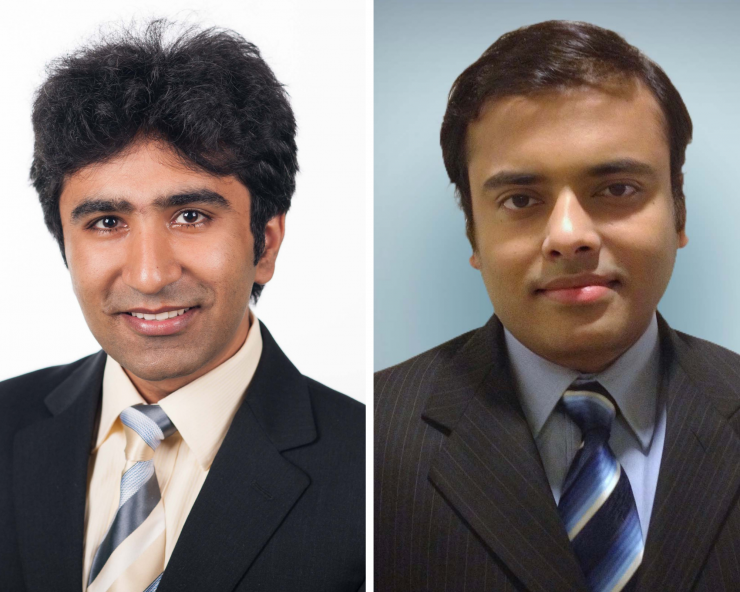Krishna, Raychowdhury Win Qualcomm Faculty Awards
Sep 02, 2021 — Atlanta, GA

Tushar Krishna (left) and Arijit Raychowdhury
Tushar Krishna and Arijit Raychowdhury have been selected for 2021 Qualcomm Faculty Awards (QFA). They are both faculty members in the Georgia Tech School of Electrical and Computer Engineering (ECE).
The QFA program supports key professors and their research, with the goal of strengthening Qualcomm’s engagement with faculty who also play a key role in Qualcomm’s recruiting of top graduate students.
Krishna was chosen for the QFA for his contributions to the modeling, analysis, and design of high-performance, energy-efficient hardware acceleration platforms.
Data movement is a key challenge in modern computing platforms, especially for Big Data applications like machine learning, on the edge and the cloud. The latency and energy cost of communicating data from memory to the chip often surpasses that of the actual computation, limiting scalability.
Krishna’s lab has been working on specific solutions to mitigate this challenge. His research has developed systematic mechanisms to understand the relationship between computation mapping and the resulting off-chip/on-chip communication. They also develop interconnection topologies and communication protocols to optimize system performance and energy efficiency. Several Georgia Tech ECE graduate students who have worked with Krishna on these topics through his advanced courses and research projects are now researchers at Qualcomm.
Raychowdhury was chosen for the QFA for his contributions to low-power system-on-a-chip (SoC) design, including his group’s work on embedded power management and delivery circuits that have impacted Qualcomm’s internal research and development.
Fine-grain power management plays a critical role in improving the energy efficiency of low-power SoCs and requires a closed-loop control between system software and embedded hardware. Over the last several years, Raychowdhury’s group has pioneered novel control topologies for improving the integration and performance of embedded voltage regulators and the co-regulation of voltage and clocking circuits. Raychowdhury's students have obtained multiple Best Paper Awards and scholarships based on their work, and several of his Ph.D. graduates are now researchers at Qualcomm’s Processor Research Group.




